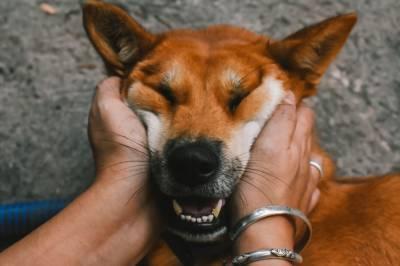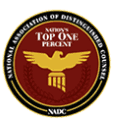What Is “Mouthing” and How Is It Different Than Biting?
 Dogs, much like their human owners, are social creatures — they play, communicate, and sometimes show aggression. These behaviors may, however, be interpreted incorrectly by humans. The fact of the matter is, even dog-owning Americans can have difficulty interpreting their best friend’s behavior because play fighting may often be indistinguishable from the real thing. Dogs will growl, bark, bite, and scratch during play fighting, exactly the same as they may behave during an actual fight. Fundamentally, this is unlikely to change over the course of a dog’s life, and even adult and elderly dogs may engage in nipping and play biting, according to the American Society for the Prevention of Cruelty to Animals (ASPCA). It is important to be aware of dogs' behaviors in case any encounters turn aggressive and result in injuries.
Dogs, much like their human owners, are social creatures — they play, communicate, and sometimes show aggression. These behaviors may, however, be interpreted incorrectly by humans. The fact of the matter is, even dog-owning Americans can have difficulty interpreting their best friend’s behavior because play fighting may often be indistinguishable from the real thing. Dogs will growl, bark, bite, and scratch during play fighting, exactly the same as they may behave during an actual fight. Fundamentally, this is unlikely to change over the course of a dog’s life, and even adult and elderly dogs may engage in nipping and play biting, according to the American Society for the Prevention of Cruelty to Animals (ASPCA). It is important to be aware of dogs' behaviors in case any encounters turn aggressive and result in injuries.
The Difference Between Mouthing and Biting
A playing dog may engage in a behavior commonly referred to as “mouthing”— or biting without much force or intent to cause damage. Mouthing is a common behavior that most dogs engage in, irrespective of breed, size, age, or temperament, among other factors. Although a mouthing dog may not intend to cause any damage, mouthing can still result in injury. Nonviolent dogs may still harm humans or other dogs while mouthing as the dog may be unaware of how much force they are using and how much force is necessary to cause injury.
If you are playing with a dog and worry their playful mouthing may injure you, or even turn aggressive, here are some general precautions listed by the ASPCA to avoid escalating things:
-
Waving fingers in the dog’s face or slapping the sides of their face entices a dog to play and may cause the animal to bite aggressively.
-
Avoid making jerking or sudden movements with your hands when playing. Such movements can encourage your pet to jump forward and grab at you, accidentally injuring you in the process.
-
Pay attention to the dog's body language. If a dog’s growl is deep or low and is accompanied by snarling, intense staring, or stiff, tense, or rigid body language, it may be a sign of aggressive behavior that needs to be addressed.
Contact an Illinois Dog Bite Attorney
Although there are steps you can take to protect yourself from playful dog behaviors becoming aggressive, it is the owner’s responsibility to ensure his or her dog is well-trained, socialized, or restrained if not. If a dog turns suddenly aggressive during play, or you otherwise sustain a dog bite-related injury, a Kane County dog attack attorney will help you determine if you are owed compensation. Schedule your free consultation with one of the knowledgeable attorneys at Mevorah & Giglio Law Offices by calling us today at 630-552-6860.
Sources:
https://www.aspca.org/pet-care/dog-care/common-dog-behavior-issues/mouthing-nipping-and-play-biting-adult-dogs
https://www.dogtopia.com/blog/tell-difference-dog-play-aggression/







Contact an Illinois Dog Bite Attorney
If you have suffered a dog bite injury, our personal injury lawyers can help you determine the actual value of the damages you have suffered, and we will work to help you recover the compensation you deserve. Call us at 630-552-6860 or fill out the form below to arrange a free consultation.


 630-552-6860
630-552-6860




